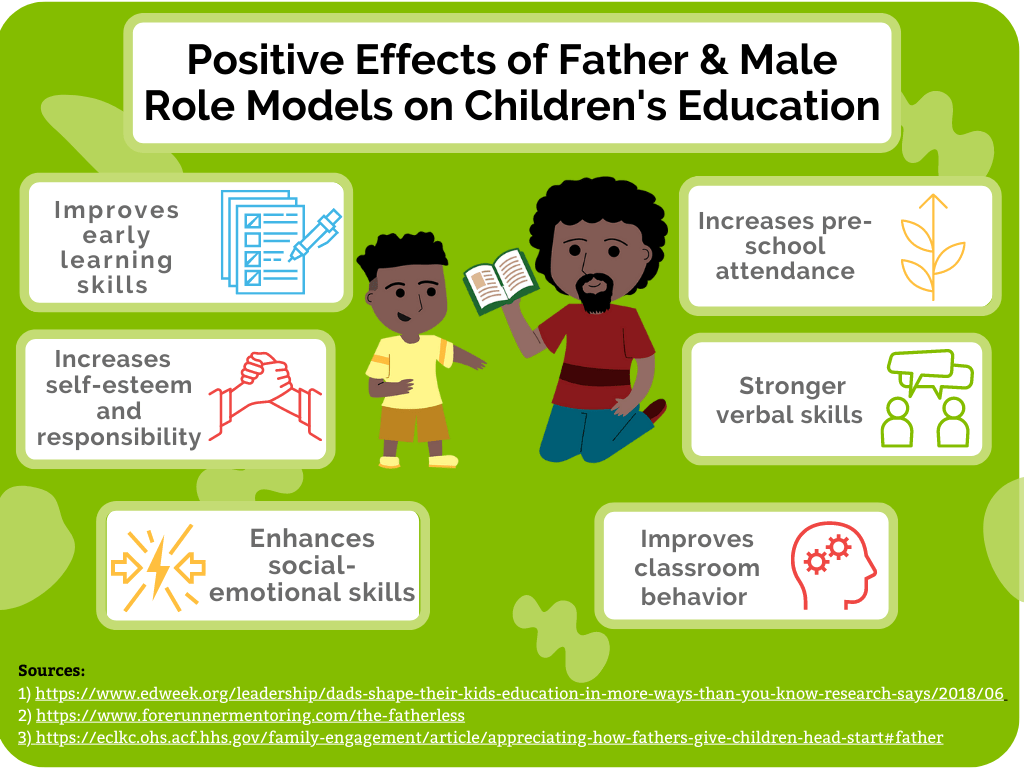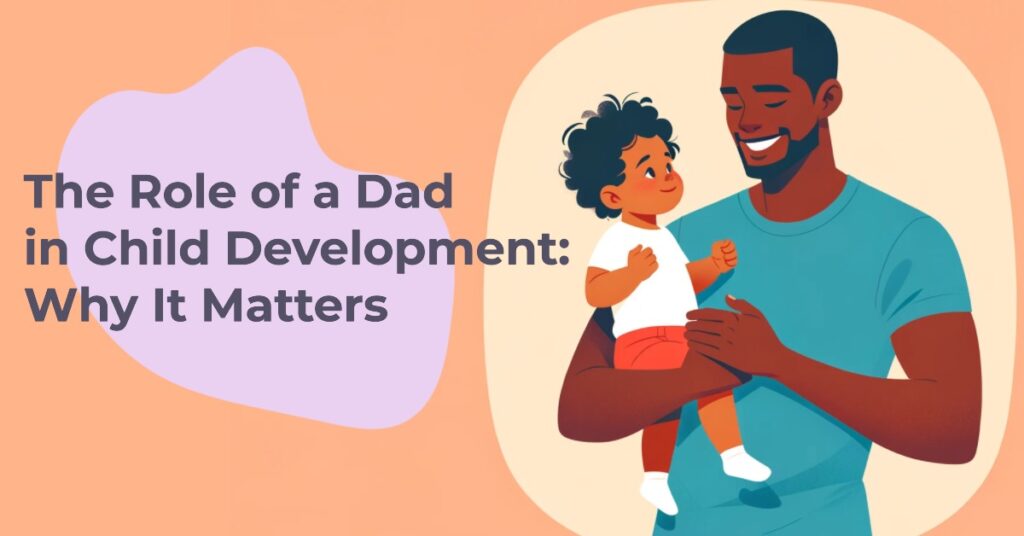What role do you think your own father played in shaping who you are today?
Understanding the Role of Fathers
Fathers often hold a pivotal position in the lives of their children. Their influence can be profound, shaping values, behaviors, and perspectives throughout childhood and into adulthood. Understanding the nature of this influence can help you see the critical role you, as a father, play in your child’s development.
The Foundation of a Father’s Influence
You might be surprised to learn that a father’s impact begins even before your child can comprehend it. From as early as infancy, your presence, tone of voice, and responsiveness can shape your child’s sense of security and attachment. When you engage actively with your newborn, you’re not just caring for them; you’re weaving the fabric of their emotional well-being.
The Emotional Component
Emotional intelligence is a vital aspect of development. Your ability to express emotions and manage them greatly affects your child’s emotional regulation. When you model healthy emotional responses, you pave the way for your child to learn how to express themselves well in various situations.
| Emotion | Healthy Expression |
|---|---|
| Happiness | Sharing joy, laughter |
| Anger | Discussing feelings calmly, suggesting solutions |
| Sadness | Seeking comfort, allowing vulnerability |
The Role of Communication
How do you communicate with your child? The way you speak and listen profoundly impacts your child’s language development and social skills. Effective communication fosters openness and can improve your child’s ability to articulate their feelings and thoughts.
Verbal Communication
Engaging in conversations with your child—asking questions and listening to their responses—builds their vocabulary and confidence. It shows that their opinions matter. You might wonder how often you should be having these conversations. A good practice is to integrate communication into daily routines, turning mundane moments into opportunities for dialogue.
Non-Verbal Communication
Your body language, eye contact, and gestures also inform your child more than words alone. For example, kneeling to your child’s level and maintaining eye contact can foster trust and connection. This says, “I am present with you,” and can make a world of difference in their receptiveness to you.

This image is property of qualitystartla.org.
The Importance of Involvement
Your active participation in your child’s life, from attending school events to extracurricular activities, sends a profound message: “You are important.” This engagement plays a crucial role in the development of self-esteem and social skills.
Academic Involvement
When you take an interest in your child’s education—helping with homework, attending parent-teacher conferences, or discussing their school day—you reinforce the message that learning is valuable. Children whose fathers are involved academically often perform better in school and have a more positive attitude towards education.
Activity Engagement
Being physically present for activities, whether it’s sports, arts, or community events, enriches your child’s experience and creates lasting memories. This involvement isn’t just about being there; it’s about your active participation. Whether cheering them on at a soccer game or painting alongside them at home, these interactions foster stronger bonds.
Role Modeling Values
What values do you uphold, and how are they reflected in your daily life? Your values become the compass your child uses to navigate the world.
Demonstrating Integrity
Integrity is crucial for building trust with your child. When you embody honesty and fairness, your child learns the importance of these qualities. They will likely mirror these behaviors in their own friendships and relationships.
Encouraging Empathy
One of the most potent lessons you can impart is empathy. Display acts of kindness not just to your family but to others as well. When your child sees you helping a neighbor or volunteering, they begin to understand the value of considering other people’s feelings and perspectives.
| Scenario | Father’s Response | Child’s Lesson |
|---|---|---|
| A neighbor is sad | Offer help and listen | Be supportive and caring |
| A friend struggles | Encourage teamwork | Importance of teamwork and cooperation |
| Disagreement at home | Resolve calmly | Conflict resolution and understanding |

This image is property of images.squarespace-cdn.com.
Supporting Independence
How do you balance guidance and allowing your child to make their own decisions? Supporting independence is essential for confidence and self-reliance.
Allowing Choices
Encouraging your child to make choices—even small ones—helps them build decision-making skills. Offer opportunities for them to express preferences, whether it’s about clothing, food, or activities. This shows that their input matters and they are capable of making decisions.
Praising Efforts
Recognizing and celebrating your child’s initiative—regardless of the outcome—instills resilience. When you praise effort, you show them that trying is a valuable part of learning, which motivates them to keep pushing their boundaries.
Navigating Challenges Together
Life isn’t always smooth sailing. Your ability to navigate challenges with your child will teach them a lot about resilience and coping strategies.
Facing Adversity
When difficulties arise, how do you respond? Sharing your experiences and the lessons learned can help your child feel less alone in their struggles. For instance, discussing a challenge you faced and how you overcame it gives them a blueprint for dealing with their own obstacles.
Setting Boundaries
While you may want to shield your child from discomfort, setting boundaries and allowing them to experience natural consequences is part of growth. This allows them to learn responsibility and accountability—essential steps for becoming an adult.

This image is property of www.motherhoodcenter.com.
Building Trust and Maintaining Connection
In your relationship with your child, trust is a cornerstone. Without it, communication and engagement may falter.
Being Available
Your availability—both physically and emotionally—affects your child’s perception of safety and security. Regular check-ins, even amidst a busy schedule, reassure them that they can depend on you no matter what.
Open Dialogue
Creating a safe space for conversations without judgment builds trust. Encourage your child to share their feelings freely; this lays the groundwork for lifelong attachments and understanding.
The Impact on Behavioral Development
Your actions and responses shape your child’s behavior significantly. Knowing how your reactions can influence them is key.
Positive Reinforcement
When your child exhibits good behavior, recognizing it encourages them to repeat those actions. This doesn’t have to be grand; simple acknowledgment can go a long way.
| Behavior | Positive Reinforcement |
|---|---|
| Sharing | “I’m proud of you for sharing!” |
| Helping | “That was kind of you to help your sister.” |
Consistency in Discipline
Establishing clear, consistent rules teaches your child about boundaries. When disciplinary measures are predictable, your child understands what consequences align with specific actions, cultivating self-regulation.

This image is property of static.toiimg.com.
Encouraging Healthy Relationships
What lessons are you imparting about relationships? You have the power to model how to build and maintain healthy friendships and partnerships.
Interpersonal Skills
Demonstrate respect and kindness in your interactions, whether with family members, friends, or strangers. Children apply what they’ve observed to their own relationships and interactions.
Conflict Resolution
Teaching your child how to navigate disagreements—through conversation and compromise—prepares them for future relationships. Your strategies in dealing with conflicts will serve as lessons for them.
Gender Roles and Representation
The way you interact may influence your child’s understanding of gender roles. Embracing equality and respect between genders promotes progressive attitudes in your child that could impact their interactions as they grow.
Fostering a Love for Learning
One crucial element of your pastimes can play in your child’s development is the encouragement of a love for learning. Your interests and enthusiasm for education can inspire them to adopt similar values.
Lifelong Curiosity
Involve your child in discussions about various subjects or hobbies—whether it’s science, literature, or sports. Show your excitement for learning. Your enthusiasm can ignite their curiosity and willingness to explore new topics.
Storytelling
Shared reading or storytelling moment creates opportunities for connection and learning. Choose diverse stories that can expand their worldview and understanding of different cultures, traditions, and experiences.

This image is property of www.motherhoodcenter.com.
Health and Well-Being
Your demonstration of self-care and healthy living teaches your child about prioritizing their health.
Modeling Healthy Habits
When you maintain a balanced diet, regular exercise, and good hygiene, you’re teaching your child about wellness. This includes mental health—expressing the importance of seeking help or counseling when needed.
Emotional Health
Encourage conversations about feelings and emotions. Being open about mental well-being can help your child learn that it’s okay to talk about feelings and seek support with struggles.
Embracing Your Role
The role of a father is multi-faceted, and embracing all its dimensions will maximize your impact on your child’s development.
Continuous Improvement
No one is perfect. Reflecting on your parenting approach and remaining open to growth can be transformative. Seek resources, attend workshops, or join groups that encourage fatherhood skills.
Community Involvement
Engaging with other fathers—sharing experiences and challenges—can provide support and camaraderie. This network helps foster a shared understanding and importance of participating actively in your child’s life.
Conclusion
The impact you have as a father on your child’s development is immeasurable and profound. By understanding your role and actively participating in their lives, you help shape the adults they will become. Your influence as a role model lays the groundwork for their emotional, social, and physical growth. Every conversation, lesson, or shared experience is a building block for their future. Your involvement is an invaluable gift that contributes to their overall development, emotions, and outlook on life. Embrace your role and cherish the precious moments—because they truly matter. copyright by: Community-Based Organizations (CBOs) Coalition
